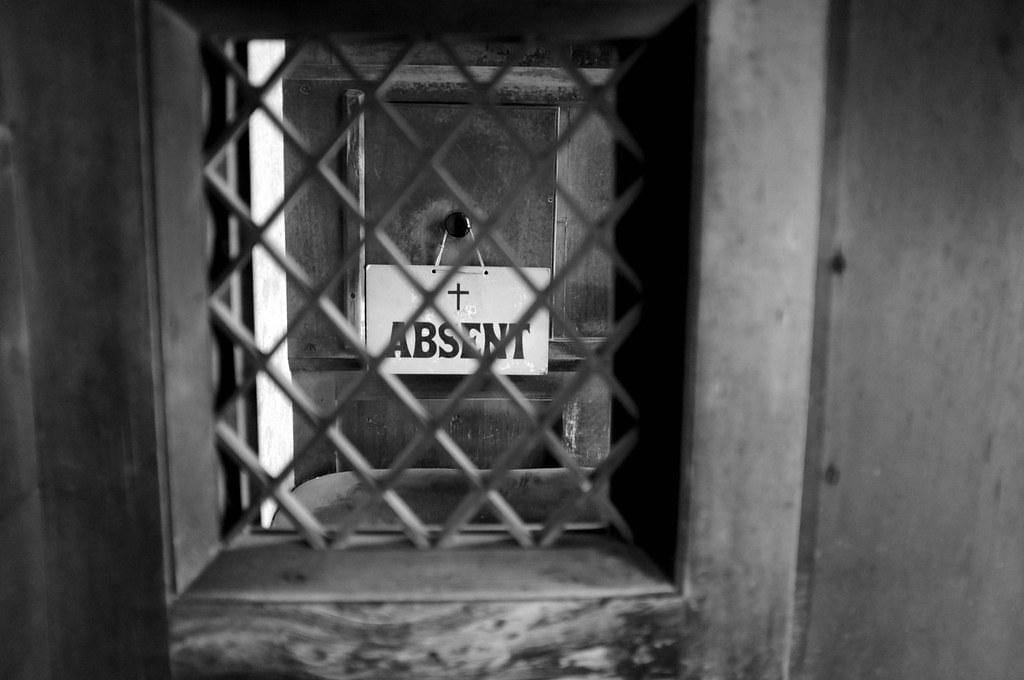
Christians get nervous when their leaders express certain doubts or recant their profession of faith. This is especially true when it happens in the public eye.
Like Rob Bell — you remember him, right?
Anyway, this happened again recently when Joshua Harris, former pastor and best-selling author of the cult classic, I Kissed Dating Goodbye, took to Instagram to inform his followers that by every standard of measurement he possessed, he was no longer a Christian.
Then came Hillsong worship leader Marty Sampson, who claimed that he was “genuinely losing” his faith. Although Sampson later clarified that he hasn’t exactly renounced Christianity, he did assure readers of the Christian Post that his faith is on “incredibly shaky ground.”
Ok, fair enough. Thanks for letting us know.
The thing is, people freak out when this stuff happens. Especially evangelical Christians, who live in a world where doubt is given a very small seat at the end of the table — that is, if it’s even allowed a place at all. At worst, doubt is often considered anathema among evangelicals. They won’t admit this fact in public, of course, but it’s pretty much true. In the evangelical world, faith = certainty.
The problem, of course, is that this equation sets people up for all kinds of trouble. It’s the kind you see when Christian leaders recant or otherwise deconstruct their faith in the public eye.
What usually happens when Christian leaders “fall away”
From a sociological and psychological standpoint, it’s interesting to observe the general reaction among Christians when their leaders recant their faith and “fall away.” I think it demonstrates many things, including but not limited to:
-Our desperately felt need for certainty
-Our dependence on authority
-Our fear of change
-Our tribal mentality
-Our reluctance to accept diverse experience
When a popular Christian leader denounces his or her former faith in some way, shape, or form, there will inevitably be those who either 1) regard that person as a champion of genuine faith, or 2) regard them as an apostate to be denounced by all “genuine” Christians.
All such presumptions are an exercise in futility, however, because at the end of the day, no one really knows what all has transpired in that person’s life to bring them to where they are.
Yes, that goes for the Gospel Coalition too. Sorry, guys.
What should happen when Christian leaders “fall away”
Nevertheless, there are some underlying assumptions that need to be explored during these times. Indeed, Christians should ask themselves a few specific questions when their leaders recant their faith. For instance: Why does their new position bother you so much? And, do you truly care about their well-being or merely how their decision makes you feel?
Let’s be honest here. We’ve all seen the fallout that occurs when a popular Christian leader leaves the faith. We’ve seen the pretentious well-wishing from former devotees, the arrogant quotations of Scripture (“he went out from us because he was never one of us”), and the superficial promises to pray for that person and their family. We’ve seen the farewell tweets and the letters of excommunication.
The truth is, it’s pretty much all a game. It’s a religious game played by religious people to cover up the way they feel inside and to protect themselves from any honest self-inquiry.
Don’t believe me? Than ask yourself, if you dare: Why do you feel such an overwhelming need for certainty? Why must you always be right, and on the side of those who are right?
Why do you depend so much on authority that someone else’s departure from the faith is so personally devastating to you?
Why are you afraid of change? What is it about accepting change in other people that disquiets you so deeply?
I could go on, but you probably get the point. In conclusion, I’ll just say this:
If it’s that important to you what so-and-so thinks about the existence of God or about the apparent contradictions of scripture, go ahead and mull it over. But take care to ask the right questions and try to be honest about your conclusions. Ultimately, you can only answer for yourself.











